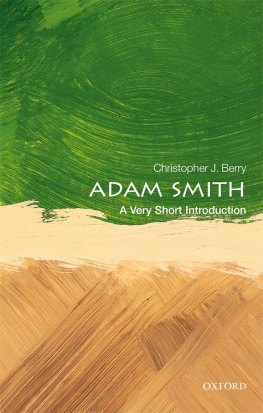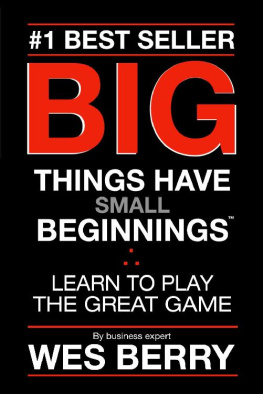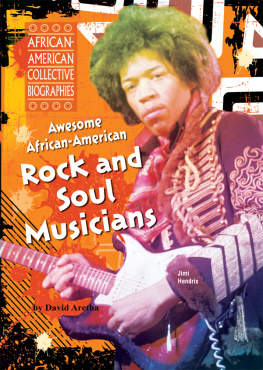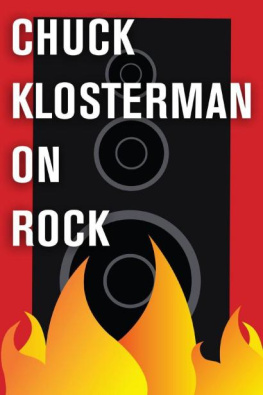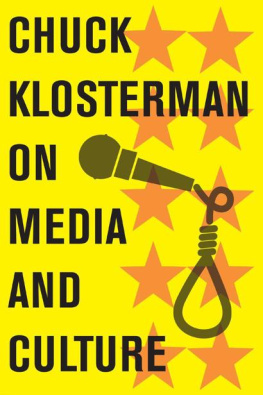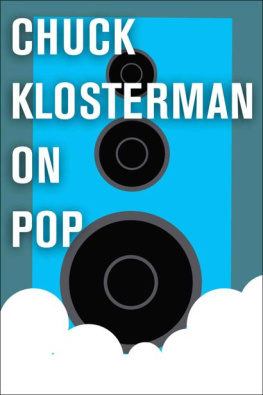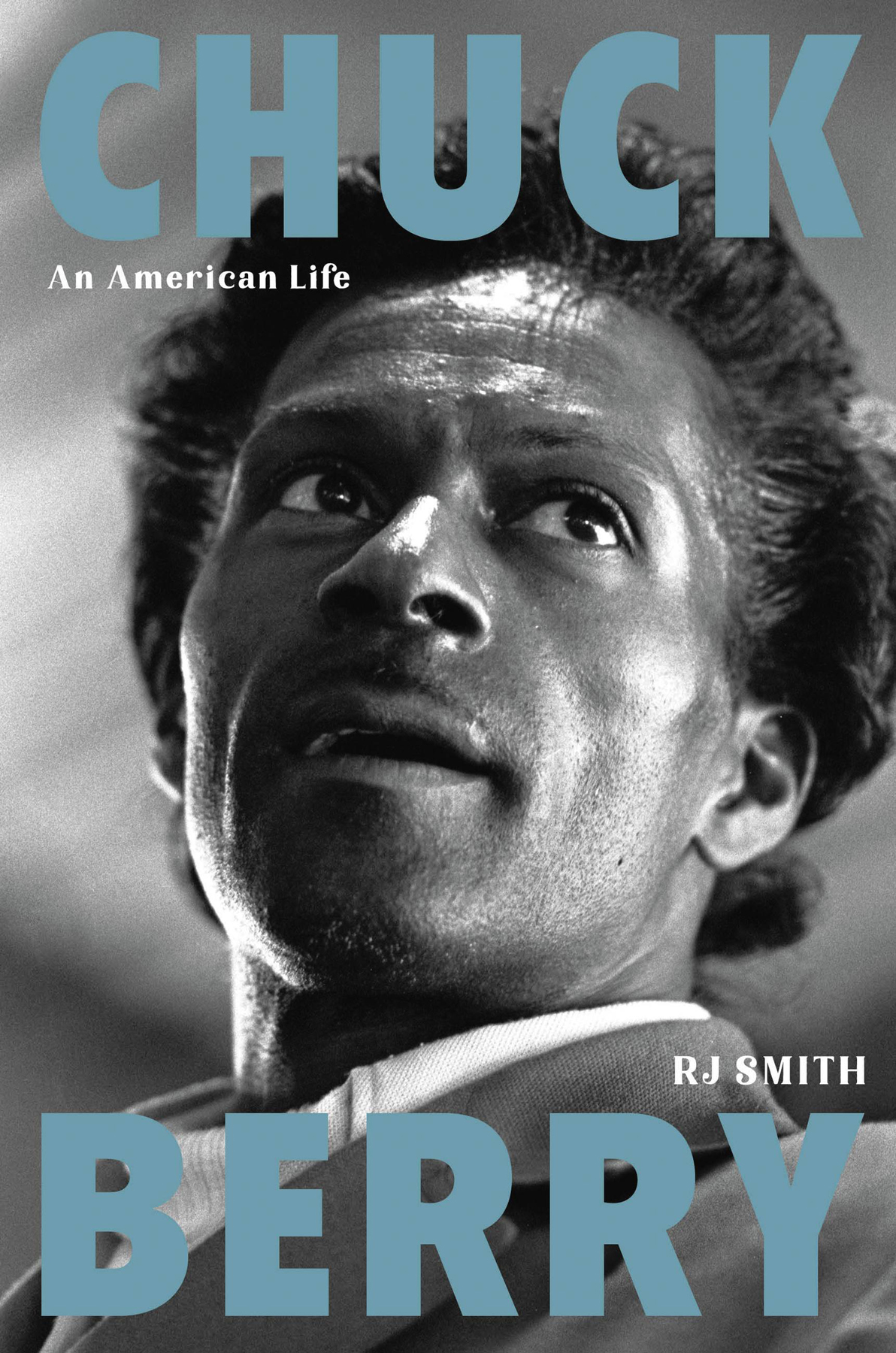RJ Smiths powerful and passionate portrait of Chuck Berry reveals the troubled man behind the iconic swagger and blazing guitar. To know Chuck Berry is to know racial conflicts in America. Smith makes sure you know both.
RJ Smiths Chuck Berry is a brilliant deep dive into the life of the true king of rock and roll. The irascible Berry shaved with a blow torch and played guitar like a possessed wizard from the Great American Highway. In unexpected ways, Berry was a civil rights revolutionary with songs as his artillery. Smiths fresh anecdotes, musicologist erudition, and page-turning prose are awesome. This is a must-read!
Chuck Berry was one of the first people I knew that was true to life. Just like this book showing the truth to his life. I knew him from the 1950s onward and I can honestly say that RJ truly captured the essence of Chuck Berry as I knew him. You couldnt have a better book on the life and career of my ol friend.
Bobby Rush , Grammy Awardwinning blues artist, Blues Hall of Famer, and author of I Aint Studdin Ya
Chuck Berry is both a national monument and something of an enigma. RJ Smith convincingly connects those two points in his scrupulous account, which is impressively detailed but never dull, and rich in the textures of time, place, personality, and sound. Youll want to read every word.
Lucy Sante , author of Low Life , The Other Paris , and Maybe the People Would Be the Times
A hungry ear drives Smiths wondrous, brilliant book. Not only does he capture the excitement of Berrys music, he hears the awe of those in its thrall, from his rock n roll heirs to rivals, fans, and mystified bystanders throughout the twentieth century. Smith writes history as though its a series of tall taleshow else to conjure Berrys brilliance as well as complexities, the unheralded highs and lows, the myth and the man, the man and the strange nation that produced him.
Chuck Berry is a necessary book that expands and beautifully complicates our understanding of Berry as a human and as an artist.
Jessica Hopper , author of The First Collection of Criticism by a Living Female Rock Critic
No one writes about popular music and its icons quite like RJ Smith: his ability to see inside the psyche of the most enigmatic figures, to reveal the soft tissue connecting them to cultural context, to deconstruct how a song actually works, all with prose that borders on poetry. Chuck Berry is a masterwork.
American Witness: The Art and Life of Robert Frank
The One: The Life and Music of James Brown
The Great Black Way: L.A. in the 1940s and the Lost African-American Renaissance
Copyright 2022 by RJ Smith
Cover design by Terri Sirma
Cover photograph Baron Wolman/Getty Images
Cover copyright 2022 by Hachette Book Group, Inc.
Hachette Book Group supports the right to free expression and the value of copyright. The purpose of copyright is to encourage writers and artists to produce the creative works that enrich our culture.
The scanning, uploading, and distribution of this book without permission is a theft of the authors intellectual property. If you would like permission to use material from the book (other than for review purposes), please contact permissions@hbgusa.com. Thank you for your support of the authors rights.
Hachette Books
Hachette Book Group
1290 Avenue of the Americas
New York, NY 10104
HachetteBooks.com
Twitter.com/HachetteBooks
Instagram.com/HachetteBooks
First Edition: November 2022
Published by Hachette Books, an imprint of Perseus Books, LLC, a subsidiary of Hachette Book Group, Inc. The Hachette Books name and logo is a trademark of the Hachette Book Group.
The Hachette Speakers Bureau provides a wide range of authors for speaking events.
To find out more, go to www.hachettespeakersbureau.com or call (866) 376-6591.
The publisher is not responsible for websites (or their content) that are not owned by the publisher.
Library of Congress Cataloging-in-Publication Data
Names: Smith, R. J., 1959 author.
Title: Chuck Berry : an American life / by RJ Smith.
Description: New York : Hachette Books, 2022. | Includes bibliographical references and index.
Identifiers: LCCN 2022019042 | ISBN 9780306921636 (hardcover) | ISBN 9780306921612 (ebook)
Subjects: LCSH: Berry, Chuck. | Rock musiciansUnited StatesBiography. | Rock musicUnited StatesHistory and criticism.
Classification: LCC ML420.B365 S65 2022 | DDC 782.42166092dc23/eng/20220419
LC record available at https://lccn.loc.gov/2022019042
ISBNs: 9780306921636 (hardcover); 9780306921612 (ebook)
E3-20220921-JV-NF-ORI
To Margaret, who took me to the library
Father, Father, its for the kids,
Any and everything I did.
Please, please dont judge me too strong,
Lord knows I meant no wrong.
GEORGE CLINTON, Cosmic Slop (1973)
Chuck Berry didnt say much about cars to writers, who didn t much ask about them. Little mattered more. They were a way to present himself to the public as he chose to be seen, and a way to hide from those he did not want looking at him. Cars were a sign of his mastery of success; cars offered a way out. Cars, to Berry, were self-evident in their importance. He loved their surfaces, wrote songs about the freedom they made possible. And once youve written a song about a thing, what else is there to say about it? That was how he viewed the situation.
It was the summer of 2011, and Berry parked his Cadillac behind Blueberry Hill. The St. Louis club was his favorite place to play in the world. Berry entered the back door and took the low stage with his band waiting.
Fans and band alike knew what to expect. On the road he had long played with whatever underpaid local rockers the promoter rounded up, but here at home Berry had his regular band of family members and longtime associates who knew what he wanted. When the Blueberry Hill shows had begun, in 1996, they were barely advertised. Tickets went on sale on Wednesdays, and locals knew to buy early, because by Friday they would be gone for a room that held only 340. Over the years shows these shows became legendary, and by 2011 Berry fans from all over the world were buying airplane tickets to see him. They realized what a big deal this was.
A local fan who had heard him dozens of times remembers. Standing in the middle of the room and counting the number of accents he heard from around the world. There was definitely an element of Im not gonna be here forever. And it was interesting to me how many people I know, major music fans, would say, Oh yeah, Ive got to do that sometime and had never done it.
It was a late-period Berry show, and the bands work was made as clear to them as if rules were posted on the dressing room wall. Their instructions were to know the material and to not in any way reinvent it, to offer an experience of the music as it had lived onstage now for years and not as it once had existed on a record. The records were pretty irrelevant. To watch when his foot went up at the beginning of the song, and again when he had enough of it. To cast a proper light on the moment, or, really, to keep him centered in that light: a focus that was unfussy, undramatic, neither too revealing nor flattering but that was pitched for a night out in a bar. To clear out of the way for the duckwalkmodified for this stage and this age, customized into something he called the scoot, a bas-relief chicken strut. The performance was a string of bright flashesthe introduction of a song echoing through time, a guitar sound that was dirty and jarring in fresh ways, a solo that cracked open the spaces between the drummers two and four like an axe in a hickory log. A flow that jumped from one song to the next without messing up, a set of railings that he could comfortably stay between, and then to effortlessly replant the railings in a different place as Berry invariably changed keys, skipped ahead to a different song, forgot lyrics, and shot his bass player a confused look.


